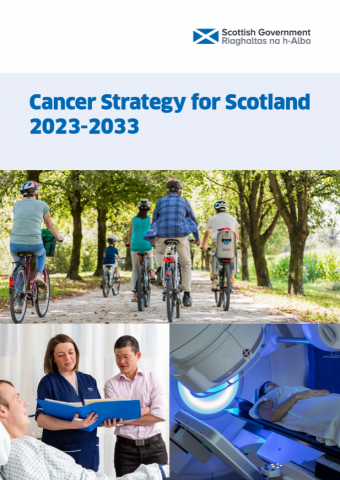Driving down late stage cancer diagnoses and levelling out health inequalities are the focuses of a new 10-year cancer strategy published by the Scottish Government.
Current figures suggest that more than two in five (42%) cancers are caught at stages three and four; the plan aims to cut this to less than a quarter (24%) by 2033, which is the equivalent of around 5,000 fewer diagnoses.
The Scottish Government highlight continued investment in the Detect Cancer Early programme as the primary mechanism for seeing that change.
Improving cancer survival rates and providing excellent, equitably accessible care is stated as the plan’s strategic aim, which will be benchmarked against a range of outcomes including timely treatment access, optimised quality of life, and improved patient experience across the full spectrum of care.
Another one of the outcomes underpinning the strategic aim is reduced population burden as cancer remains the largest disease burden across Scotland with 2021 seeing 35,000 new cancer cases – a 5.5% rise compared to two years prior.

The 10-year strategy has been released alongside a three-year action plan that comprises 136 steps to level up every area of cancer care.
“The Scottish Cancer Network will be at the heart of our strategic ambitions, setting out agreed best clinical practice and assuring people with cancer of common standards of care, no matter where they live,” said Scottish health secretary Michael Matheson. “The new Scottish Cancer Strategic Board will provide oversight of the strategy and action plan.”
“If it is fully funded and implemented, the plan will help improve the way we diagnose, treat and care for cancer patients,” added the chair of the Scottish Cancer Coalition, Dr Sorcha Hume, who is also the public affairs manager at the Scottish branch of Cancer Research UK.
“It provides a pivotal opportunity to see Scotland’s cancer services change from world-lagging to world-leading.”
Image credit: iStock



















